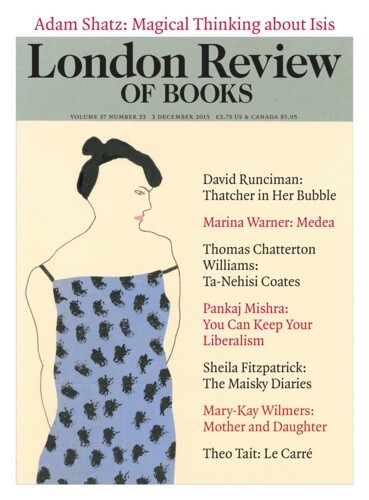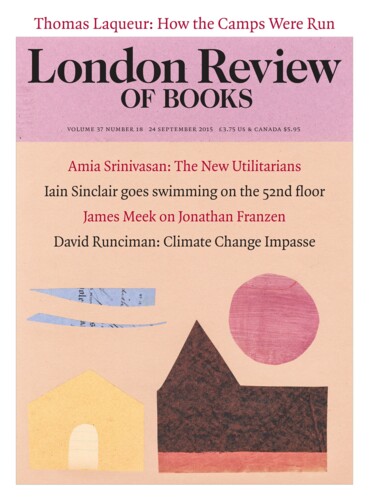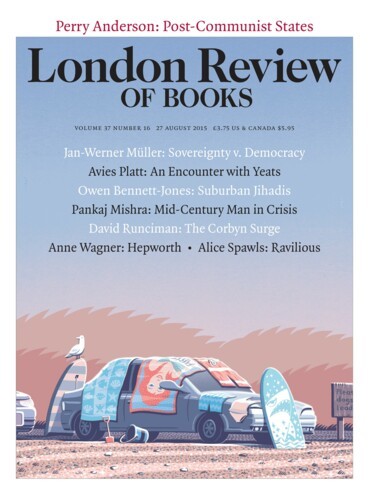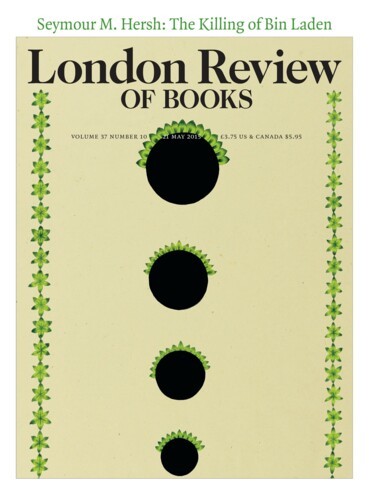Why did Mourinho get the push? The word is that he lost the dressing-room – too many Chelsea players had clearly grown sick of the sight of him – but there’s something else he’s recently lost as well: his astonishing good looks. Photos in this morning’s papers of Mourinho on the training ground just before his dismissal show a balding, puffy, slightly dishevelled figure. Once agelessly glamorous, he now looks older than his 52 years. When he arrived in English football in 2004 he came trailing not just a reputation for arrogance and achievement but unquestioned sex appeal. He was frankly a lot better looking than any of his players. In such a deeply homoerotic sport, this counts for a lot. The extraordinary hold he had over homely superstars like Frank Lampard and John Terry stemmed in large part from their desire to please their handsome boss: they used to look at him with adoring eyes, just waiting for a hug. Their fondest hope was that some of his stardust would rub off on them. Not any more. Now he looks more like Terry’s grumpy uncle.
David Runciman
David Runciman is an honorary professor of politics at Cambridge. His books include Political Hypocrisy: The Mask of Power, from Hobbes to Orwell and Beyond, How Democracy Ends and Confronting Leviathan: A History of Ideas. He has written more than a hundred pieces for the LRB on subjects including Lance Armstrong, gambling, all three volumes of Charles Moore’s biography of Thatcher, Donald Trump’s election and his defeat. He is the host of the podcast Past Present Future.
Fear in Those Blue Eyes: Thatcher in Her Bubble
David Runciman, 3 December 2015
The modern Conservative Party is never happier than when Labour has a unilateral disarmer as its leader. In 1986 Margaret Thatcher arrived at her party’s annual conference in Bournemouth with a spring in her step, despite having endured months of bruising political infighting. She promptly fell over a manhole cover and sprained her ankle but even this did little to dampen her spirits. The reason for her good mood was that over the previous two weeks both the Liberal and Labour Party Conferences had voted in favour of unilateral nuclear disarmament.
A Tide of Horseshit: Climate Change Impasse
David Runciman, 24 September 2015
It’s hard to come up with a good analogy for climate change but that doesn’t stop people from trying. We seem to want some way of framing the problem that makes a decent outcome look less unlikely than it often appears. So climate change is described as a ‘moonshot problem’, though of course it isn’t, because the moon presents a fixed target and climate change...
Short Cuts: The Corbyn Surge
David Runciman, 27 August 2015
The Labour Party, putting the decision entirely in the hands of its members for the first time, may elect Jeremy Corbyn. It’s tempting to see this as another IDS moment. But it’s something more than that. The election of IDS was wishful, whereas this looks much more wilful.
Notes on the Election
David Runciman, 21 May 2015
This election promised to produce constitutional confusion and uncertainty and instead it has delivered stark clarity. The British electoral system values clarity: few people dissent from the line that it is better to have a government that can pass legislation and take decisions when it needs to than to be stuck with one that stumbles on hand-to-mouth from vote to vote. We seem to prefer...
Podcasts & Videos
Montaigne
David Runciman
For the first episode in the new series of History of Ideas – on the great essays and the great essayists – David discusses Montaigne, the man who invented a whole new way of writing and being read.
Hume
David Runciman
For the second episode in this season of History of Ideas, David discusses the Scottish philosopher David Hume and explores how eighteenth-century arguments about the national debt can help make sense...
Pieces about David Runciman in the LRB
In a Frozen Crouch: Democracy’s Ends
Colin Kidd, 13 September 2018
A historian ought to know better, I suppose. But for the last decade – ever since I passed a long queue of anxious depositors outside a branch of Northern Rock in September 2007...
What to Tell the Axe-Man: Hypocrisy and Mendacity
Jeremy Waldron, 6 January 2011
When American politicians are caught having illicit sex – like Eliot Spitzer, who resigned as governor of New York in 2008 after it was revealed that he was using a call-girl when he went...
Boy Scouts, Bands of Hope, Football Clubs and Corner Shops
Jose Harris, 2 October 1997
Throughout the history of political thought, attempts to imagine, classify and explain possible modes of political life have been characterised by starkly polarised and stylised antinomies. Among...
Read anywhere with the London Review of Books app, available now from the App Store for Apple devices, Google Play for Android devices and Amazon for your Kindle Fire.
Sign up to our newsletter
For highlights from the latest issue, our archive and the blog, as well as news, events and exclusive promotions.





